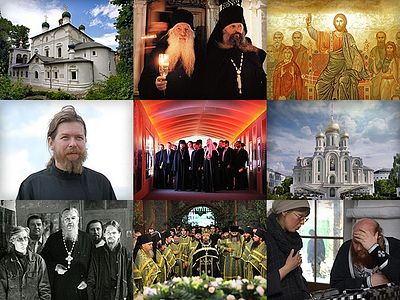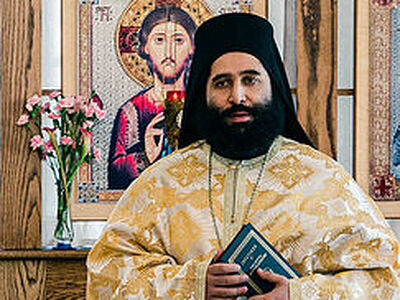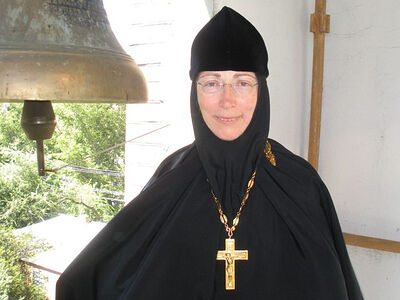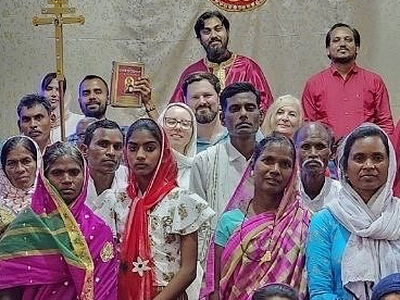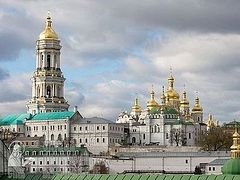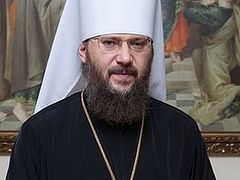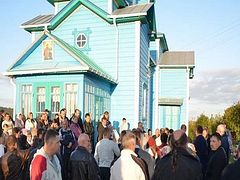Source: Religious Information Service of Ukraine
March 1, 2016
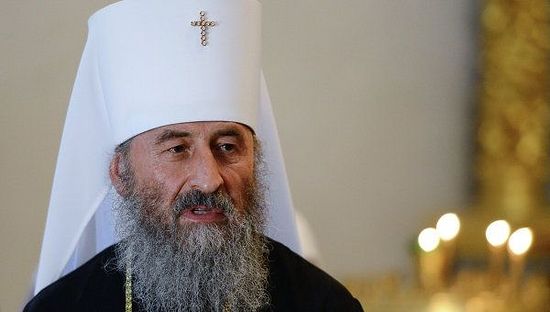 Metropolitan Onuphry, the head the canonical Orthodox Church in Ukraine
Metropolitan Onuphry, the head the canonical Orthodox Church in Ukraine
Draft amendments to the Ukrainian law "On freedom of conscience and religious organizations" relating to the change of religious affiliation of religious communities were brought in the Ukrainian Parliament.
The initiators of the bill No. 4128 were by Victor Yelenskyy, Svitlana Voitsekhovska, Pavlo Kyshkar and four more MPs, the Institute of Religious Freedom reports.
According to the authors, the bill is designed “to protect the rights of members of religious communities to informed choice and free and unimpeded change of affiliation with religious centers for satisfying their religious needs and dignified expression of religious feelings.” The proposed changes are intended to “regulate the procedure of changing affiliation of religious communities and religious centers (leadership) operating in Ukraine and abroad.”
The initiative has provoked criticism from the Ukrainian Orthodox Church (Moscow Patriarchate), whose representative expressed concern about using these changes to simplify the transfer of churches from the jurisdiction of the Moscow Patriarchate to that of the Ukrainian Orthodox Church Kyiv Patriarchate.
“In practice, it will look as follows - the parish meeting will be attended by others who do not belong to the community, but nevertheless will have the right to vote and will be entitled to adopt or amend the statute of the community,” said Rev. Alexander Bakhov, head of the UOC Synodal Legal Department.
On the other hand, according to IRS experts, difficulties may arise in the activities of religious communities, the statutes of which stipulate fixed membership, particularly in Protestant churches or which delegate the right to amend the statute to other governing bodies - the Parish Council, the Council of Elders, a brotherhood council.
“As an example, the decision of a religious community to change denomination will not be adopted by the general meeting of its members, but by third persons, who used to visit their public services or visited on occasion. It could reslult in a situation where the registration authorities will have to decide whether to take note of the decision taken in accordance with the Statute of the registered religious community or the one adopted in accordance with legislative amendments. Courts could face a similar problem,” said lawyer Maksym Vasin, Executive Director of the Institute for Religious Freedom, a member of the Expert Council of the Ministry of Culture of Ukraine.
As the IRS notes, the ruling of the European Court of Human Rights in the case “St. Michael's Parish v. Ukraine” (Application No. 77703/01) states:
“The Court recalls that religious groups have the right to determine at their discretion the manner in which they will accept the new and exclude existing members. The internal structure of religious organizations and rules governing its membership should be seen as the way in which such organizations may express their views and observe their religious traditions. The Court indicates that the right to freedom of religion excludes any powers of the state to assess the legitimacy of the means of expressing religious beliefs.”
Currently, bill No. 4128 is pending consideration in the Parliamentary Committee on Culture and Spirituality.



